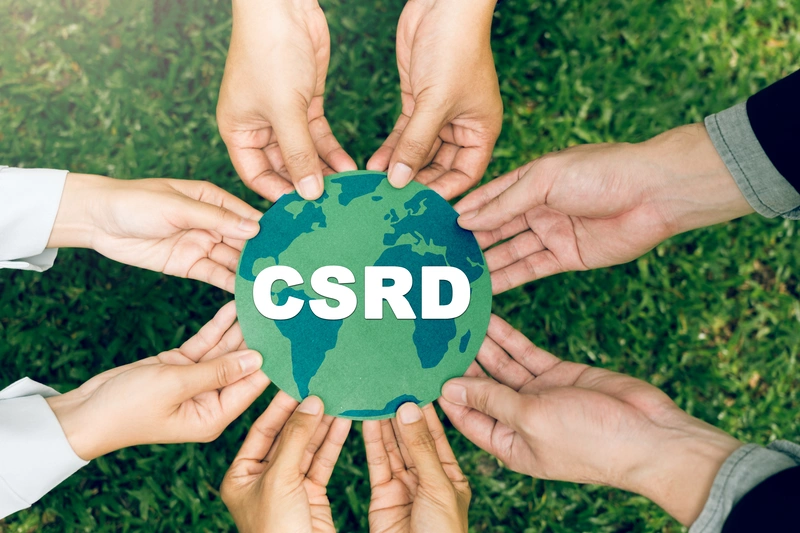The CSR requirements for companies are becoming increasingly strict. The European Corporate Sustainability Reporting Directive (CSRD) is not only expanding the group of companies that must submit reports but also leading to higher expectations regarding the content and form of sustainability reporting —and by extension, of its translation. Seven things that you should consider when working with your translators.
The wrong partner, poor communication, a lack of documentation, unstructured cooperation: there are several things that can go wrong when you have your sustainability report translated. Seven tips on how it can succeed instead.
1. Sharing the culture: Briefing for the perfect translation
Even though you are dealing with professional translators who are deeply immersed in the field of compliance, it goes without saying that the briefing must also include your internal usages and the standards specific to your organization to ensure that the translation of your sustainability report meets company expectations. How are your sustainability goals defined? What standards apply with regard to compliance and sustainability? And last but not least: what is the tonality of your other published texts that should therefore apply to your reporting as well? Sharing this information with everyone will also allow the translated sustainability reports to become an organic element of your corporate culture.
2. Staying in touch: Working with your translators
The best briefing is of no help if it remains the only contact with your language service provider until the end of the project. The work of the translators will be all the better the more information you share with them—on an ongoing basis. Provide your partners with everything conducive to the perfect translation: newly introduced policies, internal training outcomes, or changing sustainability strategies but also new industry knowledge in general. It is particularly important to establish good contacts between the in-house legal department and the language service provider. Compliance regulations are amended quite frequently and are constantly tightened up. This must also be communicated to the translators without delay.
3. Focus on jurisdiction: Sustainable legal certainty
Translating a company’s sustainability report not only requires an excellent knowledge of the target language, the subject matter, and the cultural peculiarities of the target country. A sustainability report must also comply with the legal framework in the country of publication, as otherwise, a breach of the applicable compliance regulations can quickly occur. Therefore, appropriate localization is a particularly important criterion for your choice of translation service provider.
4. Repetitio mater studiorum: The translation memory
By their very nature, texts such as sustainability reports repeatedly use the same technical terms or phrases. This is where translation memory tools can come in handy. These are small databases that store frequently used sections of text, which can then be retrieved and suggested as translations if similar passages of text appear. The longer you work with the language service provider, the more comprehensive this repertoire of stored translations will become. This not only helps speed up the translation work but also maximizes the linguistic consistency of the outcome.
5. On the same page: The sustainability glossary
This is another measure with a similar objective: together with the translators, you should compile a glossary of the most important terms relating to sustainability and CSR in the languages required! By doing so, you will not only ensure the consistent use of terminology in your sustainability reports—the ever-increasing glossary will also provide a solid foundation for other external or internal communications. It will also streamline the work required for the next round of translations.
6. Better safe than sorry: Reciprocal checks
Compliance with sustainability policies and directives is a sensitive and constantly evolving topic not only in societal but also in legal terms. Translation errors can have unpleasant consequences in both dimensions. To avoid legal problems in particular, it may be wise to have the translations checked not only by the company’s internal legal experts but also by a team of two translators assigned for this purpose from the outset. If they arrive at different results, discussions can focus on ensuring the correct term or appropriate formulation.
7. Speeding offenders: The timeframe
Although all manner of instructions and specifications must be observed, translating a sustainability report is fundamentally a creative process. It is also one that requires several proofreading and checking phases. Both aspects will suffer if you, as the principal, do not schedule enough time for the project. Naturally, the same applies to the budget allocation. There are better ways to save time and money than on one of your company’s most important business cards.







